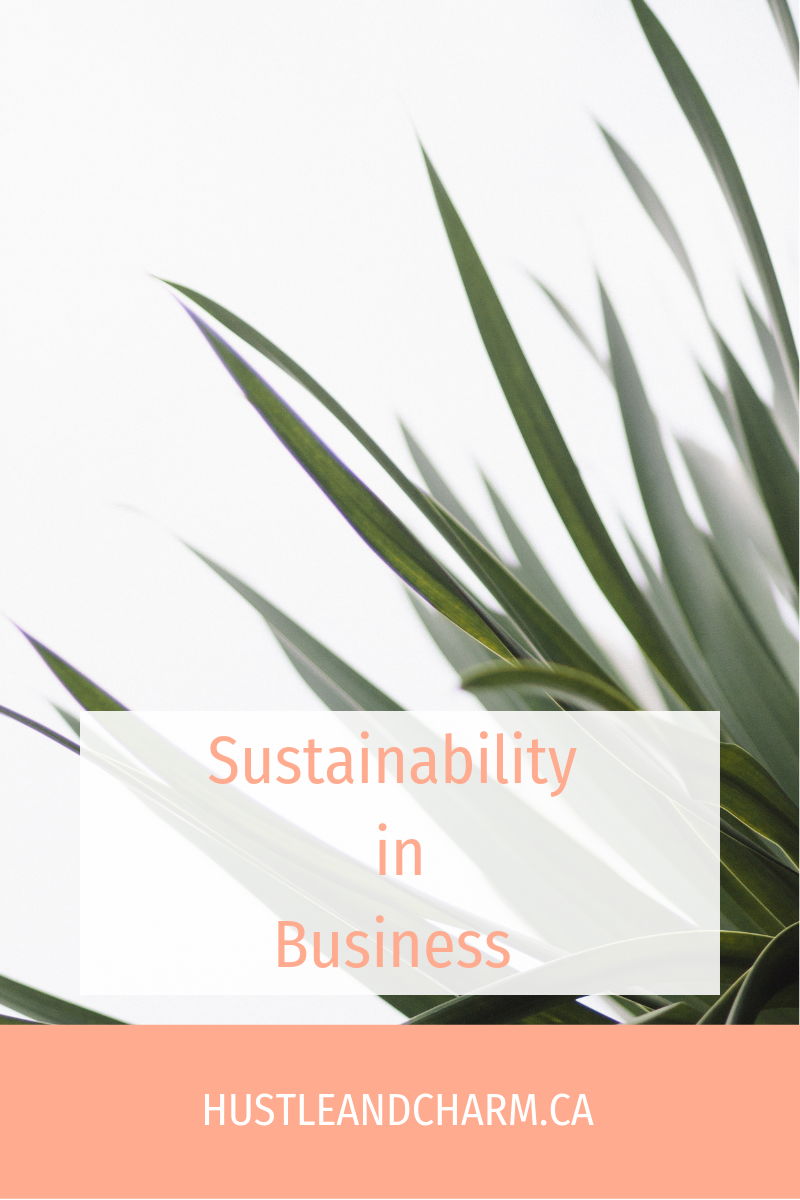Sustainability In Business
May 4, 2019
Our world is rapidly changing, which means that our businesses in turn are transforming with our global growth. In every business there are routes we can take in order to be environmentally conscious, and routes we can take to ignore the health of our globe. The choices we make can influence massive change, which is why we need to be making well-informed, eco-conscious decisions. This week, we are talking about how to be sustainable in business, as well as spotlighting some Winnipeg businesses doing it right!
In every industry, there are certain questions we can ask ourselves to dive deeper into the sustainability of our business. If you’re in the business of selling a product, it’s important to know where the materials for that product are coming from. Many companies that produce beauty, and food products do so by using palm oil as a natural preservative. This ingredient has a devastating affect on the environment and the wildlife in areas where it is grown and harvested. Palm oil production creates deforestation and in turn, global warming. The destruction of the forest increases carbon levels, warming the earth. Orangutans, tigers, rhinoceros, bears, and leopards living in the bio-diverse areas where palm oil is produce are equally at risk and many are on the verge of extinction. Through deforestation, these animals lose both their homes, and their protection. Many of these species are killed by poachers, due to the lack of shelter. Others are killed by the citizens of the villages they wander into when fleeing deforestation. These resources are not being replenished, causing these ecosystems to collapse quickly and drastically. Is the extended shelf life of our lipsticks and chocolate bars worth this sacrifice? There are other ways of preserving our products, and preserving our environment.
Many of our members take extreme pride in having environmentally conscious, sustainable businesses. One of the most wasteful industries in the world is the fashion industry. You may have heard the term “fast fashion” which focuses on speed and low costs in order to deliver frequent new collections inspired by runways and celebrity styles. The fast fashion industry is one of the leading causes of toxic chemical use, textile waste, and plastic pollution. This industry is also one of the largest polluters of clean water globally, second only to agriculture. Polyester, one of fashion’s most widely used fabrics increases plastic levels in the oceans due to the fibres that are shed from it during the laundering process. Members like Corinne Baker of Blue Line Vintage and Katherine Magne of Winnipeg Sews are two women who are on a mission to change these statistics.
In recent years, we’ve seen an increase in the amount of local and international vintage resellers. Purchasing pre-loved clothing is becoming increasingly popular and requested. Vintage resellers take pride in searching for, caring for and prepping pre-loved items for their new homes. The myths about second-hand clothing being dirty or in poor condition are just that, myths. The quality you’d expect to find when shopping new can easily be found when shopping used. Niches have also been created in the world of vintage, attracting a diverse clientele and decreasing the demand for fast fashion. Globally 20% of textiles are recycled, meaning the other 80% are lost to landfill or incineration. Shopping vintage helps to reroute and recirculate the 80% of items that are going to waste. Purchasing vintage styles usually ends up being wallet-friendly as well. If you’re clothing budget isn’t allowing you to find the styles you’re searching for, why not make them?
Learning to sew your own clothes is both environmentally friendly and economically conscious. Clothing items that are created by fast fashion stores such as H&M, Zara, Forever 21, etc. focus on speedy production, usually sacrificing the quality and construction of the garment. Sewing your own clothing items allows you to be in control of the quality of your items. Choosing materials that can be produced and purchased locally also reduces the carbon footprint globally. Shipping is a huge cause of carbon emissions, and shopping for locally made fabrics helps to reduce these toxic gases.
If you don’t know where to begin when it comes to creating your own garments, there are plenty of classes ranging in skill level and specificity. Try out a course at a local college, or enlist the services of our member Katherine Magne to teach you all the basics needed to create your own clothes. If you don’t have the time in your schedule to sew, but want to incorporate more hand made items, do some shopping at an urban market like Third + Bird, or hire a local maker to create custom garments for you! From basics to formal wear, local sewing enthusiasts like our member Shana of Vintage Heart Creations can create any garment or accessory imaginable. Shana specialises in bridal wear, which means you can look amazing on your special day, and feel amazing about your environmentally conscious garment too.
These are a few examples of how we can increase sustainability in varying industries. We hope to have shed some light on the topic of sustainability, and to have you asking yourself how you can be more sustainable in your business. Small steps, like finding more items to recycle or sourcing more environmentally friendly materials make a big impact on the overall health and wellness of our planet. Global warming and environmental crisis are more real and threatening than ever, and the time has come for all of us to take responsibility for the welfare of our home. Click here for some simple ways to be more eco-conscious in daily life and in your business.
Sources:
